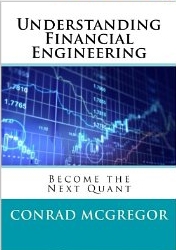How the tides have changed so quickly. One year ago, the financial markets seemed to have no bottom in sight. A year and a half ago, some of the largest and most stalwart companies (GE) were having difficulty rolling their short term debt. Now, companies are holding record levels of cash and trying to figure out what to do with it. Since the fundamental outlook from a top-line revenue perspective still does not look great, companies turn to three alternatives to expansion: 1) Share Buybacks 2) Higher Dividends, and 3) Leveraged Buyouts. All three of these are bad for bondholders and mostly positive for stockholders.
So what has caused this sudden bursting of corporate coffers? Government sponsored liquidity, fast cost-cutting by corporations, and a mild rebound in the economy. The three pieces have come together to flood corporations with cash. From an investment perspective, this is very important and you only need to look towards a few signals to convince you into shifting your asset allocation strategy. I do not have great hope for strong economic growth in years to come, but many equity positions currently look more attractive than their fixed income brethren. Right now, the IShares Investment Grade Corporate Bond ETF (LQD) earns an indicated yield of 5.05% with an average maturity of over 12 years. On the equity side, the WisdomTree Dividend ex-Financials ETF (DTN) is currently earning an indicated yield of 5.04% without the same exposure to rising interest rates. Utilities alone (XLU) have an indicated current dividend yield of 4.93%. Why would you hold long-maturity fixed income bonds in a low interest rate environment on the precipice of an inflation wave when you can earn the same income from solid equity companies with upside potential?
No matter what your proximity to retirement is, the fact that many equities pay out dividends of equal attractiveness to their fixed income brethren should convince you to shift your allocation in some way from fixed income investments to large cap names with stable and high dividends. The only reason you would want to own the bonds alone would be if you felt that we were going to head into a prolonged deflationary period where interest rates fall from where they currently are or if your portfolio could not stomach any equity volatility exposure. I do not believe a deflationary period is impossible, but I would rather take the opposite side of that bet.



